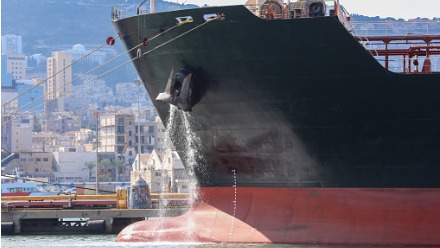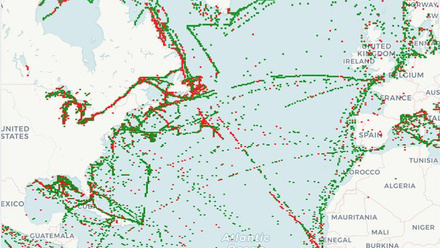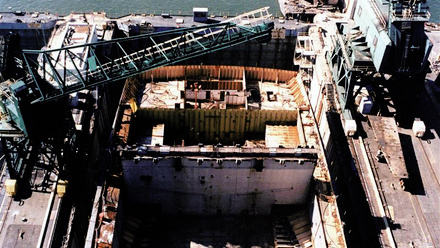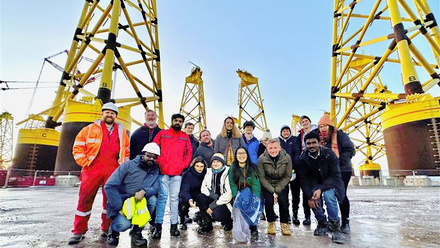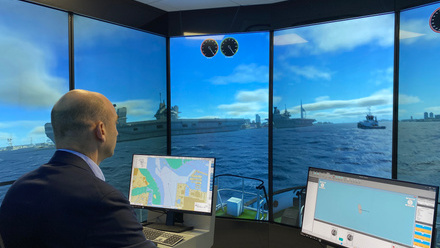Bluebottles to swarm the oceans in data management evolution
Data collection is set to take off as a 1,000-strong fleet of autonomous vessels will be deployed over the next ten years.
Maritime data and engineering consultancy BMT and Australia’s Ocius Technology are teaming up to commercialise the Bluebottle, an uncrewed surface vessel (USV), that will provide data on a pay-per-use basis to help scientists, sailors and CEOs safeguard our oceans, monitor assets, and make informed decisions for better, safer operations at sea.
Measuring 6.9 metres by 1.3 metres with a draft of 1.7 metres, the Bluebottle can be launched from a standard boat ramp and transported in a shipping container, making it an affordable and accessible solution. The USV uses a novel propulsion system that leverages renewable energy from the sun, wind and waves, and deploys sensors from BMT for continuous data monitoring. Equipped with solar power capabilities of up to 1,500 watts, the Bluebottles can spend a long time at sea without human intervention, in a wide range of ocean conditions.
Upfront costs vary depending on specific model, size, configuration, and any customisation options but the operational savings are expected to be ‘significant’, according to Ocius CEO Robert Dane. One major saving is the fact the vessels are unmanned, which not only eliminates on-board crew costs but also allows the Bluebottles to sustain operations for long periods. This also lowers any risk to humans in remote or hazardous environments.
Then there’s the innovative pay-per-use-model, which delivers affordability and value for money for emerging industries and governments when compared to conventional data collection methods.
Scaling upwards
“We’re jointly seeking to deploy the Bluebottles under an Information as a Service (IaaS) model, where the impact of platform cost on information outputs is minimised, maximising value for money for our clients and making information accessible for a wide range of users,” says Dane.
Graeme Nayler, Managing Director, APAC, at BMT, adds that the pay-per-use model democratises access to high-quality oceanographic and environmental data: “It ensures that users only pay for the data they need, rather than investing in costly infrastructure and resources to collect it themselves.”
This widens access to the data by reducing barriers to entry and allows users to efficiently scale up their operations, accessing precise and relevant data for environmental monitoring, asset management, or maritime security in both the civilian and defence sectors.
Key among those future users are wind farm developers, with continuous, real-time data on ocean conditions, weather patterns, and environmental factors expected to help inform decisions throughout the lifecycle of their projects.
“By integrating this data into their planning and operational processes, wind farm developers can optimise site selection, improve the efficiency of construction and maintenance, and enhance the overall safety and sustainability of their operations,” expands Nayler.
“Additionally, the persistent and autonomous nature of Bluebottle operations ensures continuous data flow, reducing downtime and improving the overall reliability of offshore wind farms.”
This can be important in certain jurisdictions. “The ability to collect and monitor environmental metrics and impacts in real-time supports compliance with Australian regulatory requirements [for example], helping to safeguard marine ecosystems while advancing renewable energy goals,” Nayler concludes.
The two firms are now seeking partnerships with leading technology, communications, and information management companies, alongside strategic investors to support rapid growth so that 1,000 Bluebottles can take to the sea over the next ten years.
Main image: Bluebottles riding the waves; credit: Ocius Technology/BMT.
Tell us what you think about this article by joining the discussion on IMarEST Connect.

